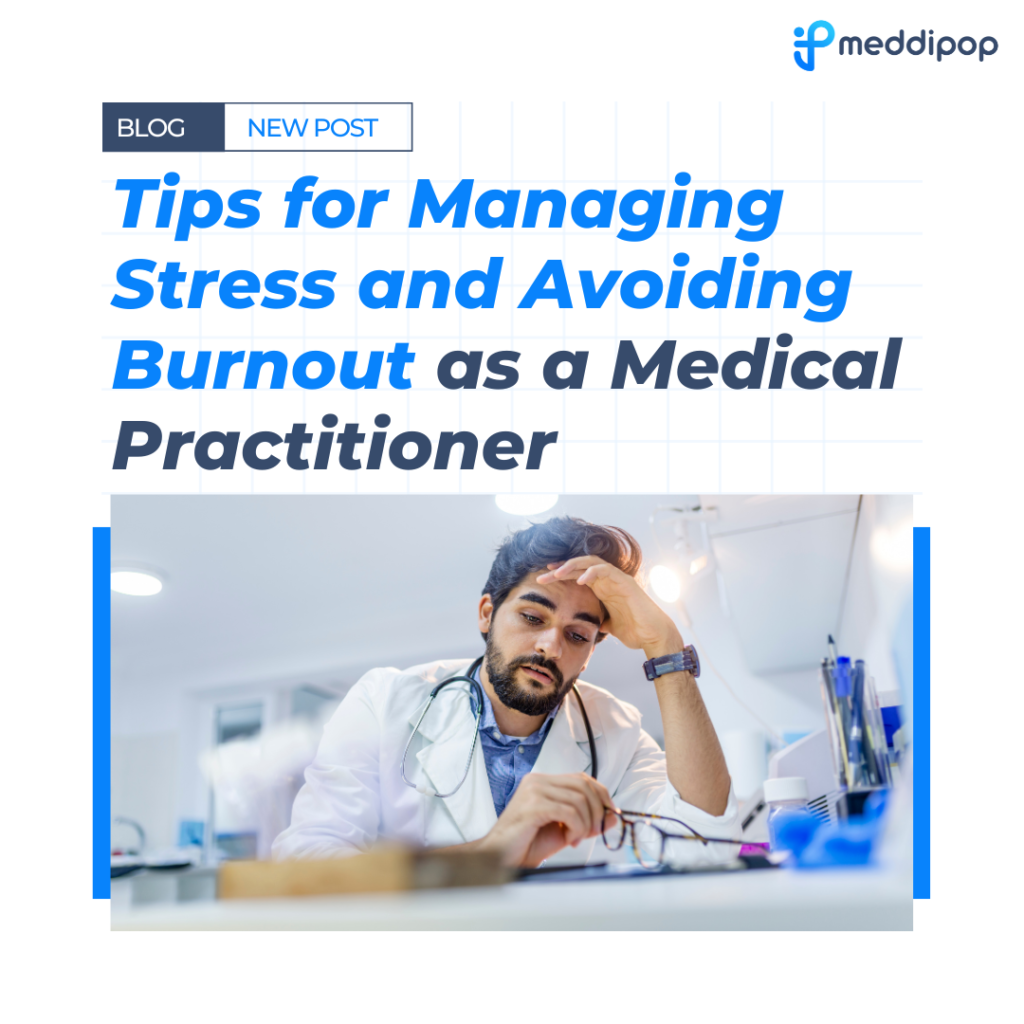As a medical professional, stress is an inevitable part of your job. From long hours to high-pressure situations- the demands of the medical field can take a toll on your mental and physical well-being. However, managing stress is crucial to your overall health and job performance. This blog post will explore some tips for managing stress as a medical professional.

For most medical professionals, stress is an everyday aspect of their life. However, many physicians feel they have little to no control over the genuine stress that permeates their working lives. This article will provide you with helpful advice as well as a few tips on how you can prevent and manage stress in your job as a physician.
Before we dive into the tips, let’s take a moment to consider Dr. Patel’s story.
Dr. Patel was a dedicated medical professional who worked tirelessly to save lives. She often worked 12-hour shifts and barely had time to eat or rest or have a work/life balance. Despite her passion for helping others, Dr. Patel began to feel overwhelmed by her job. She struggled to sleep and her mind was constantly racing with worries about her patients. One day, after a particularly difficult shift, Dr. Patel collapsed in the hospital hallway. Her colleagues rushed to her aid, and she was taken to the emergency room. After a thorough examination, Dr. Patel was told that she had experienced a stress-induced heart attack. This wake-up call made Dr. Patel realize that she needed to prioritize her own health and find ways to manage her stress.
Now, let’s explore some tips for managing stress as a medical professional.
Prioritize self-care
It’s easy to get caught up in the demands of your job and forget about your own needs. However, self-care is essential for managing stress. Make sure you’re getting enough sleep, eating healthy meals, and taking breaks throughout the day. Additionally, find activities that help you relax and unwind, such as exercise, meditation, or spending time with loved ones.
Set boundaries
As a medical professional, it’s important to set boundaries between your work life and personal life. While it’s natural to want to help your patients as much as possible, you also need to prioritize your own well-being. Set realistic expectations for yourself and communicate your boundaries with your colleagues and supervisors.
Practice stress-reducing techniques
There are many techniques you can use to reduce stress, such as deep breathing, progressive muscle relaxation, and visualization. Find the techniques that work best for you and make them a part of your daily routine. You can even incorporate these techniques into your workday, such as taking a few deep breaths between patients.
Use Tools to make your job easier
As a medical professional, there are various tools available to help you do your job more efficiently and effectively. Electronic Health Record (EHR) systems, medical reference apps, telemedicine platforms, and artificial intelligence tools such as Meddipop. Using tools can help medical professionals improve patient care and streamline their workflow
Seek support
Don’t be afraid to seek support when you’re feeling overwhelmed. Talk to a trusted colleague, friend, or family member about what you’re going through. Additionally, consider seeking professional help from a therapist or counselor who specializes in stress management.
Take breaks
Finally, make sure you’re taking breaks throughout your workday. Even a few minutes of downtime can help you recharge and reduce stress. Take a walk, listen to music, or do something else that helps you relax and refocus.
In conclusion, managing stress is essential for your health and job performance as a medical professional. By prioritizing self-care, setting boundaries, practicing stress-reducing techniques like meditation or yoga, whatever works best for you! And seeking support from colleagues who understand what you’re going through can help make all the difference in reducing work-related anxiety.
Remember, caring for yourself is just as important as caring for your patients.


